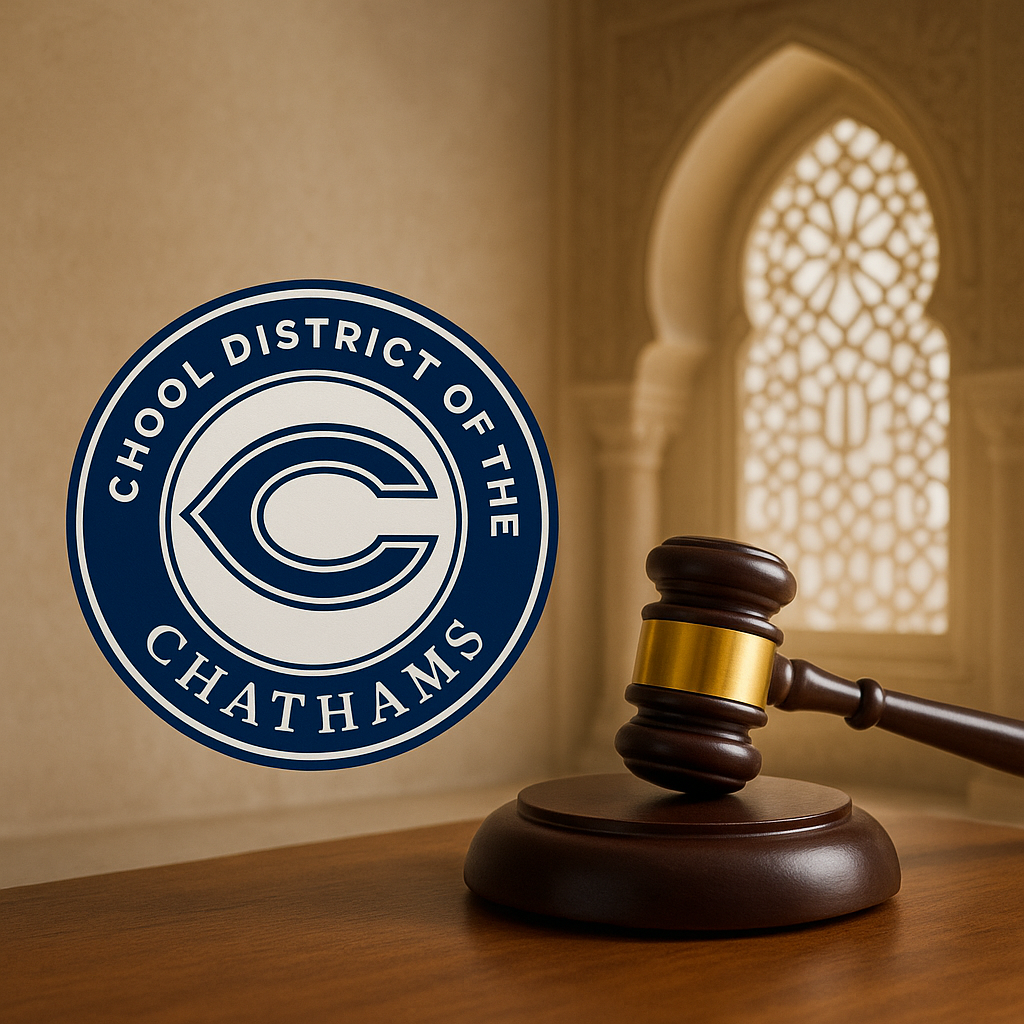In 2017—well before Zoom links and Google Classrooms gave parents a window into what happens during the school day—most families assumed things were fine. Kids went to school, came home, and the details in between were largely invisible. But COVID changed that. We started paying closer attention. And in doing so, many parents found their voices.
Libby Hilsenrath found hers before the rest of us.
That year, her child’s seventh-grade social studies class at Chatham Middle School included a unit on the Middle East and North Africa. As part of that unit, students were provided links to two videos about Islam: one explaining the Five Pillars and another titled Intro to Islam. These weren’t just dry overviews—they included direct, first-person affirmations of faith, with one video ending on the line: “May God help us all find the true faith, Islam… Ameen.”
Hilsenrath watched the videos with her son and raised concerns. She wasn’t comfortable with the framing and didn’t think it belonged in a public school. When she didn’t feel heard, she escalated the issue. What began as a local concern turned into a lawsuit—and now, years later, a federal case that could be on its way to the Supreme Court.
What made this case stand out wasn’t just the content—it was the response. Instead of engaging directly with the concern, the Chatham School District brought in outside counsel: Cleary Giacobbe Alfieri & Jacobs, a firm known in other districts, including Berkeley Heights, for a litigation-heavy approach that often leaves taxpayers footing the bill.
While the district eventually removed the videos, the legal fight continued. The curriculum remained largely intact, and the question of whether it crossed constitutional lines moved to federal court. Meanwhile, Hilsenrath continued to advocate publicly. At the May 12, 2025 Chatham BOE meeting, Board Member Jill Weber called the claims “baseless”—effectively dismissing nearly a decade of legal and public dialogue.
In May 2025, the U.S. Court of Appeals for the Third Circuit ruled against Hilsenrath and in favor of the district. The opinion found that the materials in question were presented in an academic context, not a devotional one, and that they were part of a broader curriculum that also addressed Christianity, Judaism, Hinduism, and Buddhism. The court emphasized that there was no coercion involved, and no evidence of proselytizing or religious favoritism.
The full ruling is available here in PDF format, and it has drawn attention for its alignment with the Supreme Court’s shift away from the Lemon test toward a more history-based standard for Establishment Clause cases.
According to the opinion:
“Because the ‘Intro to Islam’ and ‘5 Pillars’ videos were presented in an academic rather than devotional context, they do not come close to crossing any line separating permissible curricular materials from impermissible proselytization.”
The judges acknowledged that the videos conveyed Islamic beliefs in a personal tone but concluded that this alone did not amount to religious establishment under the First Amendment.
Regardless of where one lands on the curriculum itself, there’s a larger issue here. What happens when a parent raises a concern and the district responds—not with discussion or transparency—but with a legal team? And what does it mean when school board members publicly dismiss those concerns years later, as happened during the May 12, 2025 BOE meeting?
Even if the courts found no constitutional violation, does that mean the district handled things well?
We’ve seen this play out in other towns too. A parent speaks up. The district digs in. And instead of meaningful conversation, they get silence—or a summons. The legal bills pile up, and the trust erodes.
As of now, the case is not yet before the Supreme Court, but it may be heading there. Hilsenrath has the option to file a petition, and her legal team has hinted at that possibility. If the Court takes the case, it could become a major ruling on how religion is handled in public education. If not, the Third Circuit’s ruling stands.
But regardless of whether it goes to Washington, the story already has something to say—about power, process, and who gets heard in our public schools.
You can read more about the case here.
Subscribe to NJ21st For Free
Our Commitment to Ethical Journalism
|



